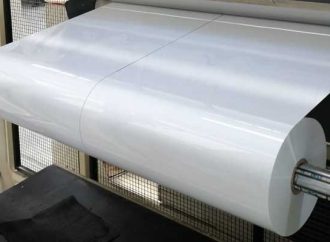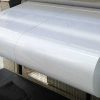Introduction: Pimples are a widespread skin problem that impacts numerous people, and there is often curiosity surrounding the impact of caffeine in its formation. In this piece, we’ll distinguish truth from falsehood as a skin doctor gives professional guidance regarding the connection among caffeine and blemishes. Prepare yourself to uncover the reality and acquire helpful
Introduction:
Pimples are a widespread skin problem that impacts numerous people, and there is often curiosity surrounding the impact of caffeine in its formation. In this piece, we’ll distinguish truth from falsehood as a skin doctor gives professional guidance regarding the connection among caffeine and blemishes. Prepare yourself to uncover the reality and acquire helpful advice for handling blemish-prone skin.
Fact: Caffeine Can Increase Oil Production
A piece of information concerning caffeine is the truth that it is capable of stimulating oil production on the skin. This growth in oil manufacturing can potentially contribute to the formation of pimples. Too much oil on your face may block pores, causing the emergence of blackheads, whiteheads, and pimples. If you have blemish-prone skin, it may be beneficial to limit your caffeine consumption to help manage production of oils.

Photo by Elina Sazonova: https://www.pexels.com/photo/two-brown-ceramic-mugs-1907071/
Fiction: Caffeine Directly Causes Acne
In contrast to common misconception, caffeine consumption itself not directly contribute to the occurrence of acne. Pimples are a condition with multiple causes affected by different elements including genetic influences, endocrine system, and personal habits. While stimulant can contribute to excess sebum, it is not the only factor of breakouts. It’s important to tackle other elements that might contribute to your breakouts, including hormonal disruptions or inadequate skincare practices.
Fact: Caffeine Can Aggravate Existing Acne
If you already have pimple-prone skin, consuming high levels of coffee can potentially aggravate your situation. Coffee is a substance that may elevate stress levels and provoke hormonal shifts, which can intensify acne breakouts. Furthermore, caffeine could interrupt your sleeping habits, resulting in heightened inflammation and possible skin irritation. It’s important to be conscious of your coffee intake and its possible effect on your dermis.
Fiction: Eliminating Caffeine Can Cure Skin Blemishes
While limiting coffee consumption can be beneficial for controlling breakouts, it is not a definite remedy. Pimples are a complicated problem that demands a holistic method for care. It’s essential to develop a suitable skin care regimen, sustain a balanced eating plan, handle stress degree, and seek advice from a skin doctor for customized guidance. Eliminating caffeine alone might not fully reduce acne, yet it can still be a beneficial measure in handling the condition.
Advice for Handling Epidermis
1. Limit caffeine intake: Contemplate cutting down on caffeinated beverages and foods to aid in managing oil production and potential acne aggravation.
2. Maintain a consistent skincare routine: Wash your skin twice daily with a mild cleanser, apply non-comedogenic moisturizers, and integrate ingredients like salicylic acid or benzoyl peroxide to combat acne.
3. Avoid touching your face: Touching your visage could transfer bacteria and sebum, which could result in blocked pores and acne. Pay attention concerning this tendency and make an effort to refrain from contacting your facial skin all day long.
4. Manage stress levels: Hormonal imbalances can be caused by stress and induce acne breakouts. Implement stress management strategies such as working out, contemplation, or pursuing interests to maintain a balanced stress level.
5. Consult with a dermatologist: If you’re struggling with chronic breakouts, it’s important to get expert opinion. An expert in skin care can give individualized suggestions and recommend suitable therapies to effectively control your acne.
Conclusion:
In conclusion, while tea can contribute to excess sebum production and worsen pre-existing acne, it is not the primary reason for acne. Controlling skin demands a holistic approach that incorporates appropriate skincare, a nutritious lifestyle, and tailored recommendations from a dermatologist. By distinguishing truth from falsehood and applying these suggestions, you can gain command with your skin blemishes and strive for a more radiant and healthier complexion.





















Leave a Comment
Your email address will not be published. Required fields are marked with *